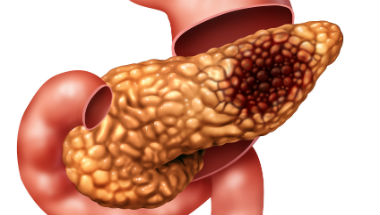Information for the public
Pancreatic cancer: the care you should expect
Pancreatic cancer is the fifth leading cause of cancer death in the UK. About 23 people die every day from this type of cancer. Its symptoms can be similar to lots of other conditions and people are often diagnosed late. We want this guideline to make a difference to people who have pancreatic cancer, by making sure that:
- if pancreatic cancer is suspected, you are offered the right tests to confirm it quickly and help your care team learn all they can about it – this will help them to plan the best treatment
- you are seen by a specialist pancreatic cancer team who will help you understand all your treatment options and support you to make decisions about your care
- you and your family get psychological support to cope with the effect of pancreatic cancer on your life
- you get help with symptoms, including help to control any pain and to make sure you get enough nutrition from your diet.
Making decisions together
Decisions about treatment and care are best when they are made together. Your care team should give you clear information, talk with you about your options and listen carefully to your views and concerns.
To help you make decisions, think about:
- What matters most to you – what do you want to get out of any treatment?
- What are you most worried about – are there risks or downsides to the treatment that worry you more than others?
- How will the treatment affect your day to day life?
- What happens if you don’t want to have treatment?
If you can’t understand the information you are given, tell your health professional.
Read more about making decisions about your care.
In the news
Read NICE news about how this guideline will help.
Pancreatic cancer patients should be offered early scans to avoid unnecessary surgery, says NICE

Where can I find out more?
NHS Choices has more information about pancreatic cancer.
Find your nearest local Healthwatch.
The organisations below can give you more advice and support.
- Cancer Research UK, 0300 123 1022
- Macmillan Cancer Support, 0808 808 00 00
- Pancreatic Cancer Action, 0303 040 1770
- Pancreatic Cancer UK, 0808 801 0707
NICE is not responsible for the content of these websites.
We wrote this guideline with people who have been affected by pancreatic cancer and staff who treat and support them. All the decisions are based on the best research available.
ISBN: 978-1-4731-2795-1
Additional resources
This page was last updated: